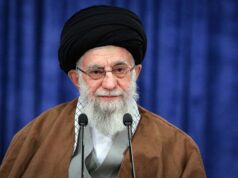It is an odd thing, this ceasing of fire being negotiated between Israel and Hamas. A throwback to wars of old, it postulates that in the absence of shooting, the parties will retrieve their dead, celebrate their festivals (see the 1914 Christmas truce on the battlefield of Flanders), or even, possibly, figure out what to do in the longer term. It is entirely in-applicable to Israel — first and foremost because the shooting is not the greatest problem Israel faces.
Israel’s problem is more of certainty and uncertainty.
The concentration of Israeli brainpower and American funds on the problem of Gaza yielded Iron Dome — a homegrown Israeli system that not only tracks and hits incoming rockets and missiles, but differentiates spatially between those that will hit populated areas and those that will fall outside the boundaries of major population centers. So when you read that Iron Dome has hit X percent of the rockets overall, it has hit a much greater proportion of rockets that would have caused substantial damage and death. Couple that with the excellent civil defense system in Israel and the readiness of the population to do what the government tells it to do in an emergency, and you have a disconnect between the volume of criminal fire emanating from Gaza (all of the fire emanating from Gaza is criminal, because many of the rockets don’t have guidance to be shot at specific targets, and the ones that might aren’t fired at military targets) and Israeli casualty figures.
Is that why CNN and Fox show only Palestinian children running, wailing, and screaming — because their leadership put the launchers among them and didn’t spend a nickel on safe rooms, civil defense, shelters, or anti-missile systems? (Hint: no.)
In addition, Israel could, if it chose, simply flatten Gaza. For all the international mock outrage about Israeli tactics, does anyone think that after a thousand Air Force sorties, if Israel intended Palestinian genocide, it couldn’t have been committed by now? You can watch the YouTube videos of Israeli Air Force pilots aborting missions because they see people in the streets and “knocking on the roof” to encourage people to leave buildings. International media outlets are screaming that Israel fired into a building that housed their offices, but Palestinian Islamic Jihad acknowledged that a senior commander had his headquarters there and that Israel had killed him there. The journalists are lucky that Hamas’s enemy is Israel.
If Israel’s problem is neither the number of Israeli casualties nor any inability to crater Gaza, we return to certainty and uncertainty. There is certainty that Hamas desires the destruction of the Jewish state through warfare (the fact that it can’t do it is irrelevant). This leads to psychologically debilitating uncertainty about the timing of the next round of warfare. A negotiated ceasefire at any point leaves both of those intact.
There is certainty, too, that Hamas — and its patron Iran — cheat. Is there anyone out there still who believes that Iran’s nuclear aspirations are peaceful and that they’ve shown the IAEA everything? Under the circumstances, any Hamas promise to do anything — should it make one — would be nothing but cause for additional uncertainty as to the time of its breaking.
So, what is Israel to do?
Cease fire.
Cease fire unilaterally at the moment Israel decides that it has done as much destruction of Hamas capabilities inside Gaza as its military command deems essential. And cease fire with a message — that the ceasing of fire is indeed unilateral and is undertaken because the government of Israel has decided that it has done what it intended to do and therefore chooses to stop without regard to what Hamas wants. And that because it was unilaterally begun, it will last only as long as the government of Israel finds that it serves the interest of the State. If it doesn’t, fire will recommence, and that without regard to Hamas as well.
That puts the problem of certainty and uncertainty on the other side.





